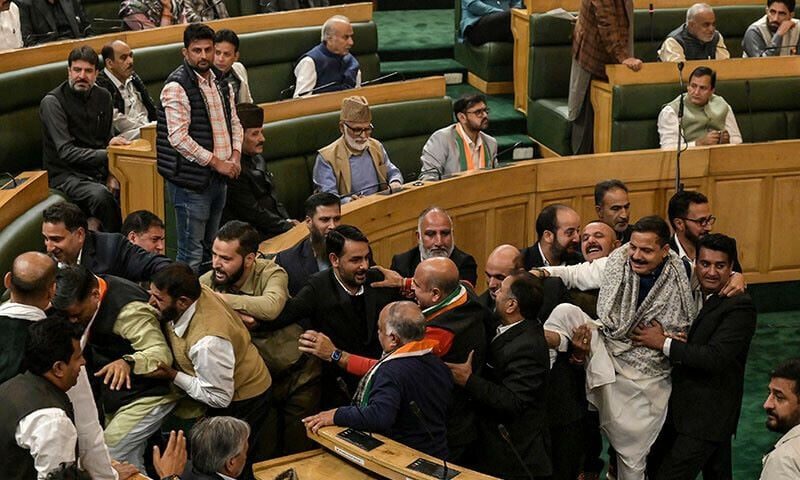Modi’s comments come days after newly-elected lawmakers in IIOJK passed a resolution demanding the restoration of the region’s special status

News Desk
NEW DEHLI: Indian Prime Minister Narendra Modi has unequivocally defended his government’s controversial 2019 decision to revoke the partial autonomy of Indian Illegally Occupied Jammu & Kashmir (IIOJK), emphasizing that no force in the world can restore Article 370, which granted the region special status. Speaking at a rally in Maharashtra, Modi, referring to the constitution of Dr. B.R. Ambedkar, one of the architects of India’s constitution, stated, “Only the constitution of Babasaheb Ambedkar will operate in Kashmir,” making it clear that the revocation of IIOJK’s autonomy is a permanent move.
Modi’s comments come days after newly-elected lawmakers in IIOJK passed a resolution demanding the restoration of the region’s special status. This development follows IIOJK’s first local elections in a decade, in which the ruling National Conference party, which is opposed to the revocation, had included a promise to restore the autonomy in its election manifesto. However, Modi’s government has maintained that the decision to alter the status of the region is final, and the power to restore Article 370 rests with the central government.
Before the revocation in 2019, IIOJK had its own constitution and considerable autonomy in managing its internal affairs. This arrangement allowed the state to enact laws on a wide range of matters, with the exception of foreign affairs, defence, and communications. Since the revocation, the region has been reorganized into two federally administered territories: Jammu and Kashmir, and Ladakh. These changes have been controversial, particularly in IIOJK, where many political groups, including the National Conference, have decried the move as an attempt to undermine Kashmir’s unique status and its Muslim-majority identity.
The ongoing dispute over IIOJK has deep roots, with both India and Pakistan claiming the region in full since their independence in 1947. The region has been a flashpoint for conflict, with a long-running insurgency and military presence, and has been central to the territorial disputes that have led to wars between the two countries. Kashmir remains one of the most militarized zones in the world, and its political future remains a sensitive and contentious issue for both nations.



